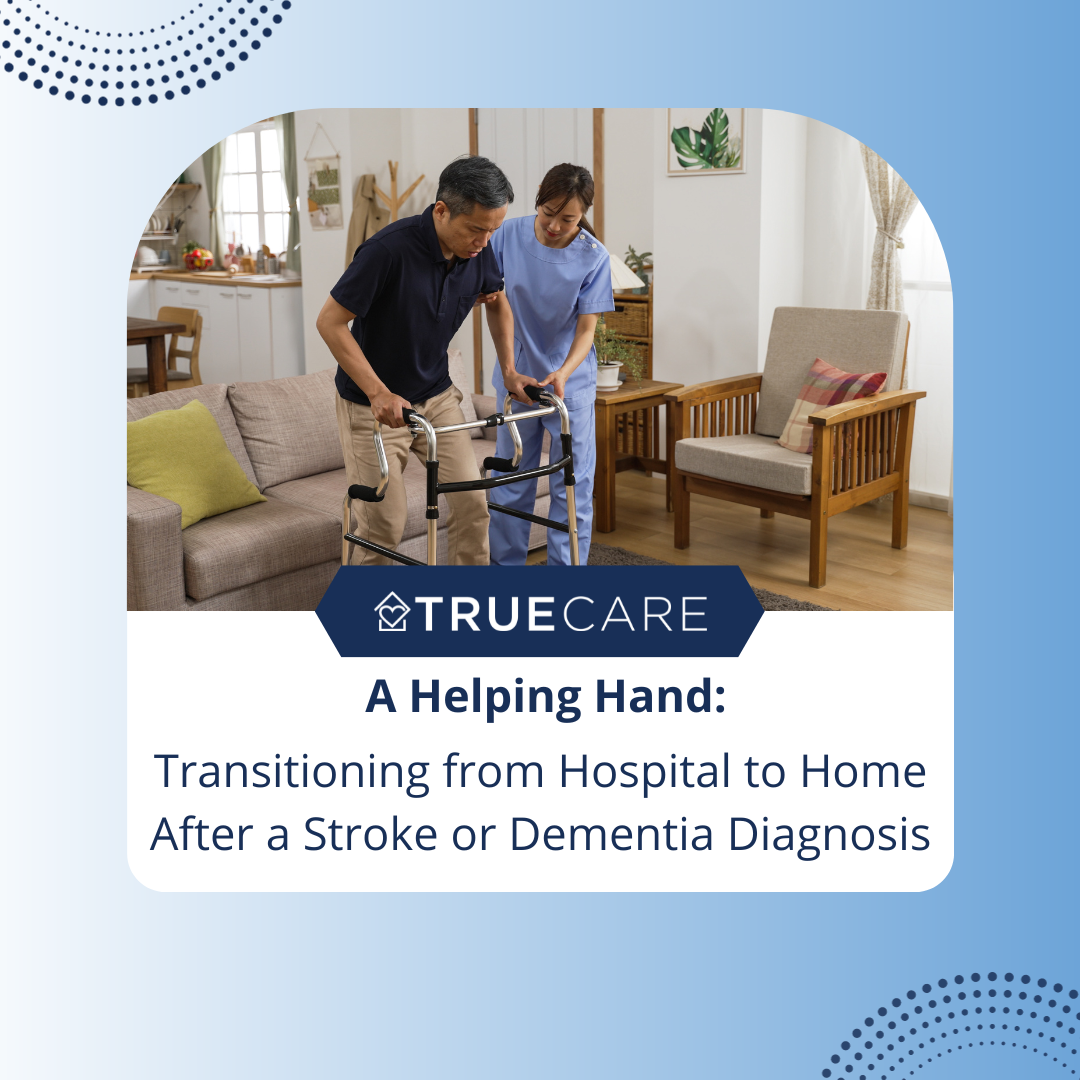Your loved one or client recently experienced a stroke or received a dementia diagnosis. While seeing them in the hospital may have been difficult, you were likely reassured by the presence of nurses, doctors, and other skilled providers who were there to care for your loved one. Now that they’re coming home, you’re facing an entirely new set of questions and challenges. How will you keep your loved one or client safe and comfortable at home following a stroke or dementia diagnosis? How will you manage your own self-care and keep up with other household routines while also attending to their needs? We understand that the journey you are embarking on can feel overwhelming at times. But try not to let yourself worry too much; you are not alone in this, and True Care is here to offer you guidance, support, and practical tips to make this transition as smooth as possible.
A Helping Hand: Transitioning from Hospital to Home After a Stroke or Dementia Diagnosis
Posted by True Care Staff in Alzheimer's & Dementia, in Caregiver Corner, in wellbeing
Dementia: Recognizing the signs and symptoms
Posted by True Care Staff in Health & Lifestyle, in Alzheimer's & Dementia
Do one or more of your loved ones suffer from memory loss and other symptoms caused by dementia? Dementia is a common condition that affects an estimated 5.4 million Americans over the age of 65. Although dementia has some common causes, its symptoms are not always obvious or easy to diagnose. By learning the early warning signs of dementia, you can be on the lookout for these signs and symptoms. Early intervention is key to improving prognosis for those living with dementia, so talk to your doctor or other trusted healthcare professional if you find yourself or someone you love experiencing these symptoms.
Dementia can be hard to diagnose:
Understanding and Supporting a Person with Dementia
Posted by Josephine Amato-Schamuelian in Alzheimer's & Dementia
Understanding what it is like to live with dementia can help you support someone with the condition. Living with dementia will affect a person's feelings, thoughts, and responses. It is important to recognize and respond to the person's emotional needs.
The Benefits of Music for People with Dementia
Posted by Grace Townley-Lott, LMSW in Alzheimer's & Dementia
Music has a profound effect on our moods. When an upbeat tune comes on, it can be hard to resist tapping your feet, bobbing your head, or singing along! And just like that, your mood has been elevated.
The Search for an Alzheimer's Cure in an Age of Misinformation
Posted by Grace Townley-Lott, LMSW in Alzheimer's & Dementia
It's so easy to get caught up in health fads. You can find innumerable people who seem knowledgeable online, who are marketing their own solutions to cure or prevent some of the world's most dreaded diseases. Alzheimer's disease is one of the most feared diseases, and, of course, everyone is hoping for a cure. When people advertise their own unproven solutions, they've got an easy market by preying on everyone's hopes and fears.









